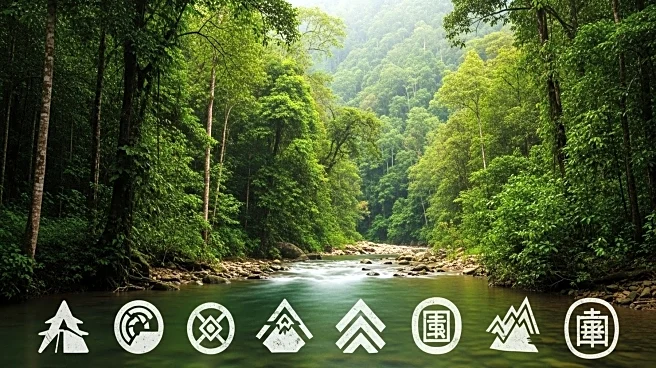What's Happening?
The Nicaraguan government has granted over 500,000 hectares of land for mining exploitation to eight Chinese companies. This move, covering a total area larger than several Nicaraguan departments, has sparked environmental concerns. The concessions allow for mineral extraction, exploration, and the establishment of processing plants. The Fundación del Río, an environmental organization, has criticized the lack of transparency and consultation in granting these rights, particularly in protected areas like the Río San Juan Biosphere Reserve. The concessions could potentially legalize mining activities in sensitive ecological zones, raising alarms about possible environmental degradation.
Why It's Important?
The allocation of extensive mining rights to foreign companies, particularly in ecologically sensitive areas, poses significant environmental and social challenges. The potential for pollution, deforestation, and habitat destruction could have long-term impacts on Nicaragua's biodiversity and local communities. Additionally, the lack of transparency and consultation in the concession process raises ethical concerns about governance and the protection of natural resources. The situation also highlights the geopolitical dynamics of foreign investment in resource-rich regions, where economic interests often clash with environmental preservation and indigenous rights.
What's Next?
The environmental implications of these mining concessions are likely to prompt further scrutiny and potential legal challenges from environmental groups and affected communities. There may be increased pressure on the Nicaraguan government to ensure compliance with environmental regulations and to conduct independent impact assessments. The international community, particularly neighboring countries like Costa Rica, may also express concerns about cross-border environmental impacts. The situation underscores the need for sustainable development practices that balance economic growth with environmental stewardship.









